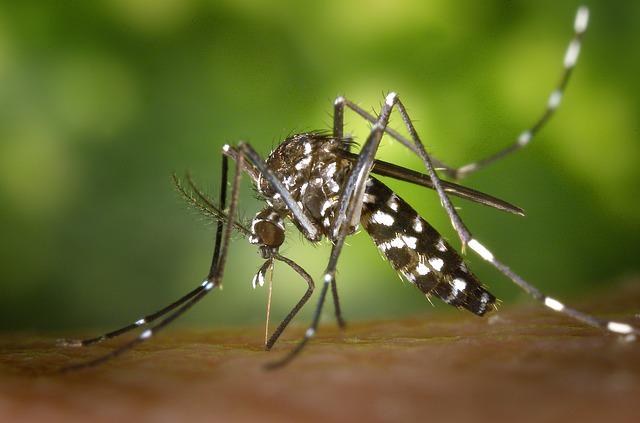

By Joachim Ng
With daily Covid-19 cases now below the 5,000-level, everyone is likely to fall into complacency about hygiene. There is a growing assumption that the air will soon be free of the Covid virus and our health crisis will be over. But another deadly virus that has long made its home in your house and neighbourhood is ready to take wing again to dominate the airspace, if it is vacated by Covid.
The dengue virus carried by the Aedes mosquito has been on holiday with just 1,000 cases a week in contrast to Covid cases which are more than 1,000 a day. But with Covid-19 abating, dengue is set for takeoff. Singapore, with a population below one-fifth that of Malaysia, recorded almost 1,000 dengue cases one week last month. The equivalent number in Malaysia would be 5,000 a week.
The Aedes mosquito, also known as the tiger mosquito because of its black and white stripes, hospitalised an average of 2,400 victims a week in 2019. Harbour no illusions about dengue as it’s a killer. During 2019, the flying tiger caused 174 deaths. In May 2020, Perak alone recorded 1,351 dengue cases in one week.
The mosquito population will surge as the days get hotter with global warming. Mosquitoes love heat and shun cold. That’s why they run away from airconditioning set below 24 degrees C.
One bite can result in a horrendous experience. Dengue makes all your bones ache till you feel they are breaking, and the fever is so high you have to be constantly dabbed with water. For a stretch of nights you can’t sleep well. Victims who have gone through this hell ride will instantly swat a mosquito each time they see one.
As the mosquito is far more easily detectable, we can achieve better success eliminating dengue than Covid-19. First, there should be a federal law requiring every handphone to be fitted with a mosquito sensor that can tell the presence of mosquitoes and record the location. If you fall victim to dengue, the health authorities can then go through the app and inspect all the mosquito-infested places that you have recently visited.
Offenders, if found confirmed to harbour breeding spots in their premises, should then be heavily penalised. A guilty householder or shop occupant should get fined RM1,000 for the first-day and second-day offence each. For a third-day offence, the house or shop ought to be sealed off until a hapus nyamuk operation is successfully conducted and the offender has paid for the operation.
What if the offender is the town or city council, state government, or even a federal government department? The penalty should be much higher, including personal fines of RM2,000 or demotion for the individual civil servants found to be negligent in enforcing dengue prevention SOPs in their buildings or public spaces under their jurisdiction.
To avoid falling victim to dengue inside your own house, here’s what you must do to ensure you are not breeding the pest: Make sure there is no water left exposed for more than 48 hours. A spoonful of water is a large enough area for mosquito larvae to breed.
Danger places are the kitchens, toilets, bathrooms, washyards, wash basin areas, balconies, and aircon compressor ledges. Water may stagnate in kitchen dish racks, toilet brush holders, toothbrush holders, water dispenser trays, rarely used toilet bowls, and exposed water cisterns.
Be especially careful with buckets, containers, and pails that are used to store water for bathing. Make sure they are tightly covered. Many householders make the mistake of inspecting only the surface of exposed water for mosquito larvae. The new generations of mosquitoes are quite savvy and they live right at the bottom of water containers clinging to the sides to avoid detection. Don’t be fooled.
Be careful with potted plants. Don’t place a tray underneath the pot to collect excess water that flows down. The tray will hide mosquito larvae among the greenery. Next is your garden if you live in landed property. Puddles, barrels, ant traps, leaking garden tap spots, and rain gutters clogged with leaves are favourite breeding spots. Mosquito-proof your garden by inspecting every drop of water.
However, the mosquito has a flying range of almost half a km or your condominium grounds may be infested as is often the case. To ward off this unwelcome visitor, install mosquito screens to cover all your doors and windows. Another refreshing habit to develop is to shower four to six times a day to wash away your sweat, as mosquitoes are drawn to it.
Every building or site should have a mobile telephone number registered with the Health Ministry. If you suspect any premises, call the Health Ministry which should be able to contact the occupier to conduct a virtual inspection with mobile phone zooming in to spots as directed by a health officer. If the video indicates possible infestation, the enforcement team should make a physical inspection of the house, shop, office, or site.
Construction sites are the champion breeders, and many neighbourhood dengue deaths are traceable to these sites. The method of control is reactive, dependent on complaints by which time someone may have died. The law should be revised to stipulate that every construction site be monitored by a drone, with the contractor paying for the service.
The drone should be deployed towards the end of every working day to perform a virtual inspection and it should also be equipped with mosquito sensors for detection. A video viewing office should be set up at the site entrance gate to enable the neighbourhood committee to view the video and get the drone report at the end of every working day.
If the drone report says there are mosquito breeding spots and this is confirmed by the video viewing, the committee should immediately inform the local council which should then suspend all construction activities the next day. During the suspension period, the contractor should be fined RM1,000 for every breeding spot and a hapus nyamuk operation should be conducted.
Construction should be allowed to resume only if the majority of households in the neighbourhood agree in a poll to be conducted by the local authority. If the majority decides against work resumption, it is for the contractor to convince unbelieving householders and the local authority that it has put all necessary safeguards in place and that there will be no further mosquito breeding.
Disclaimer: The views and opinions expressed in this article are those of the author and do not necessarily reflect the official policy or position of Ipoh Echo


